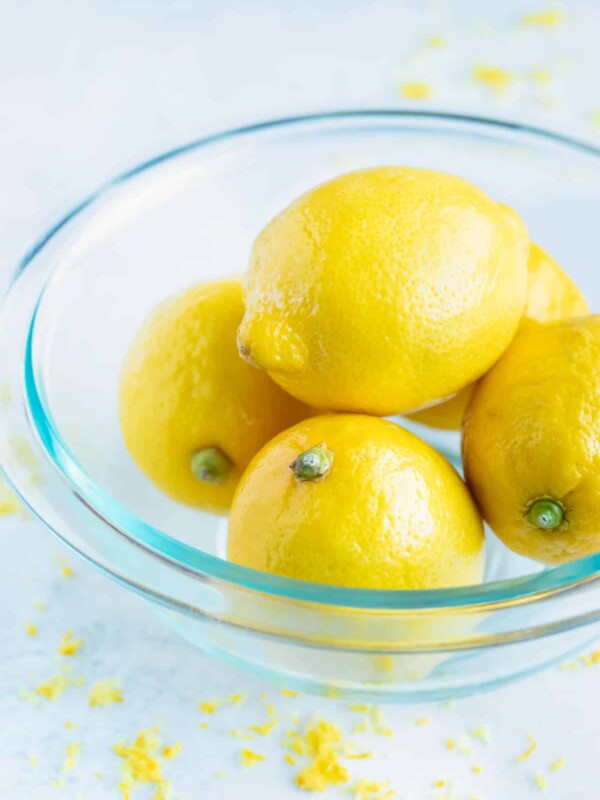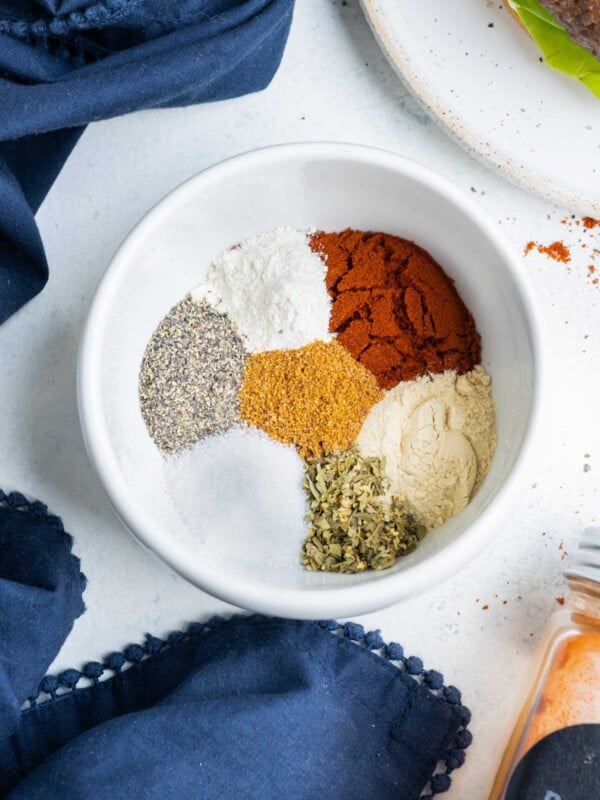What are lemons?
Lemons are a citrus fruit known for their sour taste and yellow color. They grow on trees, very often in your very own backyard! And you’ll also typically find them piled in a heap at your grocery store.
The lemon, or the citrus limon, is from the Rutaceae family, which include all things citrus plants and fruits. It is said that the lemon originated in Spain and Southeast Asia. As the lemon has made its way all around the world, it has become one of the most popular and versatile ingredients.
Lemon Nutrition Facts
Take a look at this table below to see the health benefits of lemon:
| Calories | 18.8 |
| Protein | 0.72 g |
| Fat | 0.2 g |
| Carbohydrates | 6.1 g |
| Fiber | 1.8 g |
| Sugars | 1.6 g |
| Calcium | 16.9 mg |
| Iron | 0.39 mg |
| Potassium | 89.7 mg |
| Sodium | 1.3 mg |
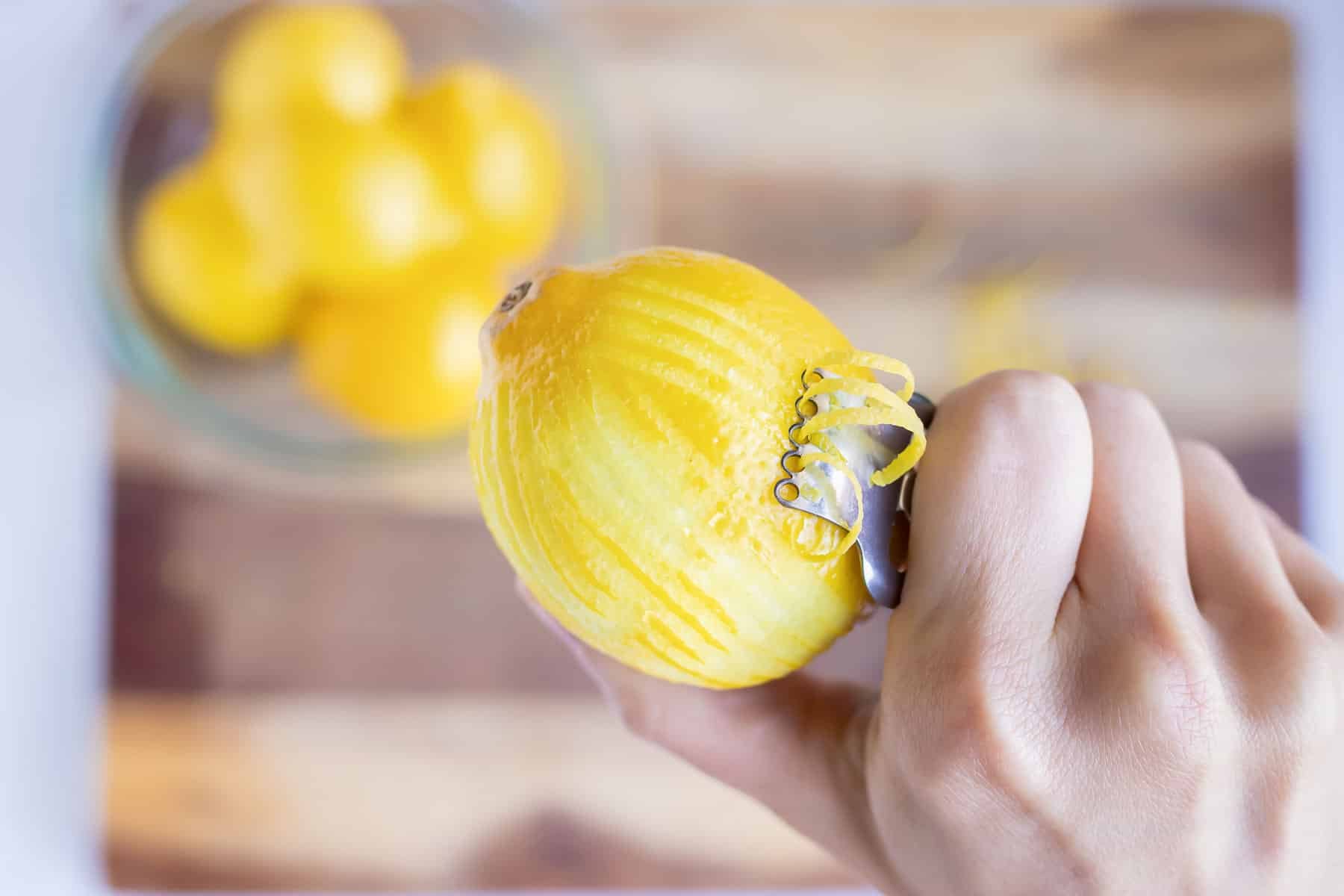
Health Benefits of Lemons
Here’s a list of 10 potential health benefits of incorporating lemons into your daily diet, including drinking a glass of lemon water per day:
Boosts Immunity
Lemons are high in vitamin C content, which is a powerful antioxidant that helps your immune system. Vitamin C assists your body in fighting disease-causing oxidative stress, so there are definite potential benefits to consuming a whole lemon or two every day. We know that men and women need between 75mg-90mg of vitamin C daily.
Reduces Anemia
Interestingly enough, vitamin C assists your body in absorbing iron, meaning pairing iron with vitamin C will help address iron deficiency. Additionally, drinking cold or warm lemon water gives you a boost in folate and magnesium, adding an additional 1.2mg of vitamin C because folate and magnesium enhance the intake of vitamin C into cells.
Reduces Risk of Chronic Diseases
Fruit and vegetables that are high in vitamin C content may help reduce the risk of cancer and heart disease. A simple glass of lemon water can help your body build up resistance.
Better Gut Health
The trick with better gut health is to keep hydrating, and adding lemon to water can make hydration a little more pleasant. It’s recommended to drink it in the mornings because it may promote a laxative effect like coffee.
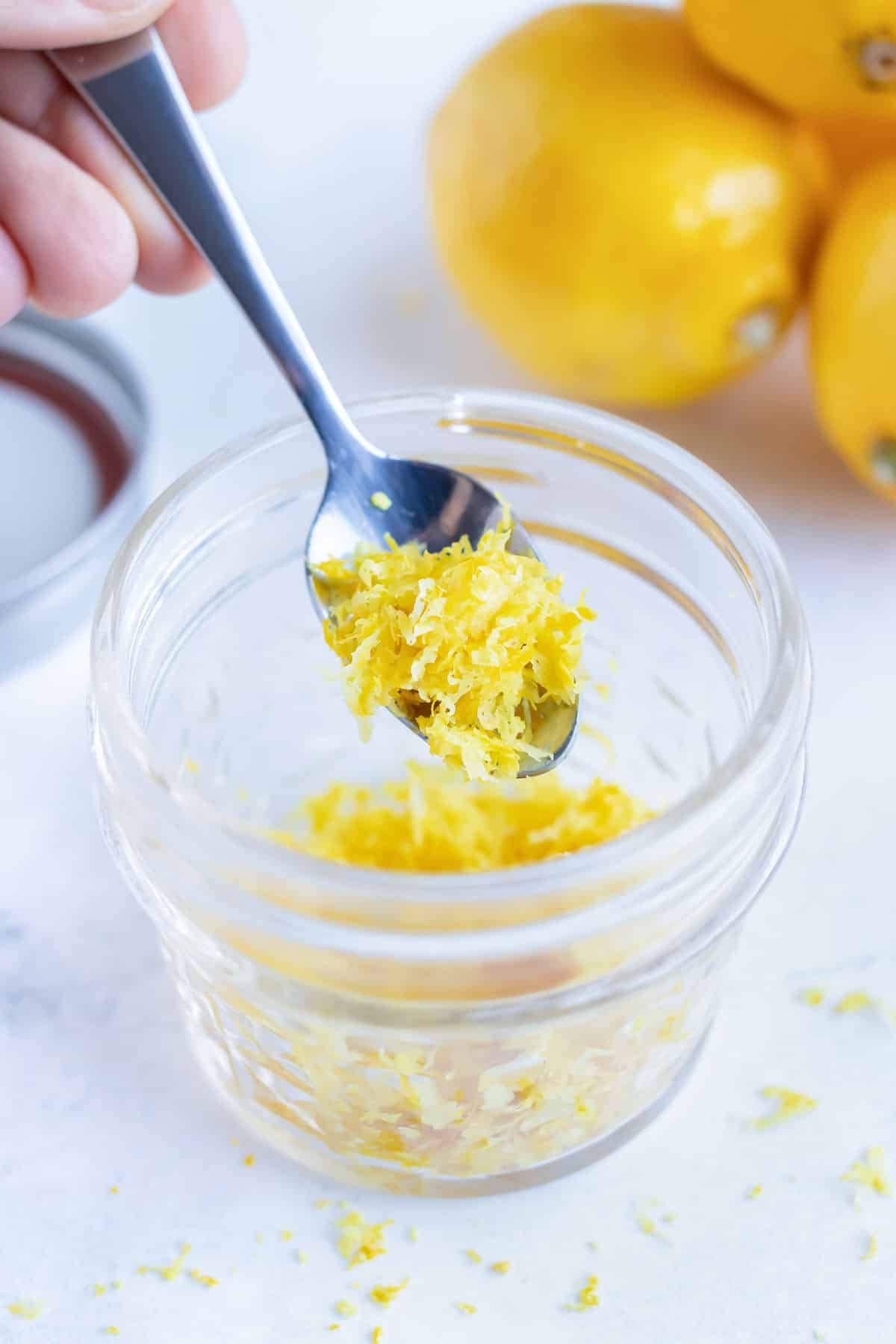
Lowers Kidney Stone Risk
Since kidney stones are built up of mostly calcium, lemons could prevent these stones the since lemon’s citric acid binds to calcium. Fresh lemon juice squeezed into water is a great way to keep your kidneys happy and stone-free.
Promotes Weight Loss
When the lemon is incorporated in an every day diet in any form, it may decrease body fat, cholesterol, and glucose when paired with a high-fat diet. As mentioned before, hydration is key to weight loss since water increases your metabolism.
Assists in Skin Health
Drinking lemon water throughout the day may give you clearer skin. Since the lemon assists in healthier and quicker digestion, your skin will be able to take in nutrients and minerals left behind. It also boosts collagen in your skin, reducing wrinkles and healing sun-damaged skin quicker.
Reduces Bad Breath & Smelly Hands
Rubbing lemon on your hands after chopping garlic or foods with strong odors eliminates the smell! It also applies to bad breath when you eat these types of food. Drinking hot lemon water right after a meal and right when you wake up will stimulate saliva and prevent a dry mouth that may lead to bad breath and bacteria growth. Be sure to rinse with water afterward to protect your tooth enamel.
Includes Antioxidants
Lemons have flavonoids, which are plant compounds that have antioxidant properties. These antioxidants protect your body cells and therefore support blood circulation, insulin sensitivity, and reduce high blood pressure.
Helps with Organ Reset
Drinking lemon water when you wake up and before you go to bed may assist your organs in restoring and regenerating while you’re sleeping. Warm water containing lemon may stimulate the right kind of stomach acid production, which is excellent for your liver.
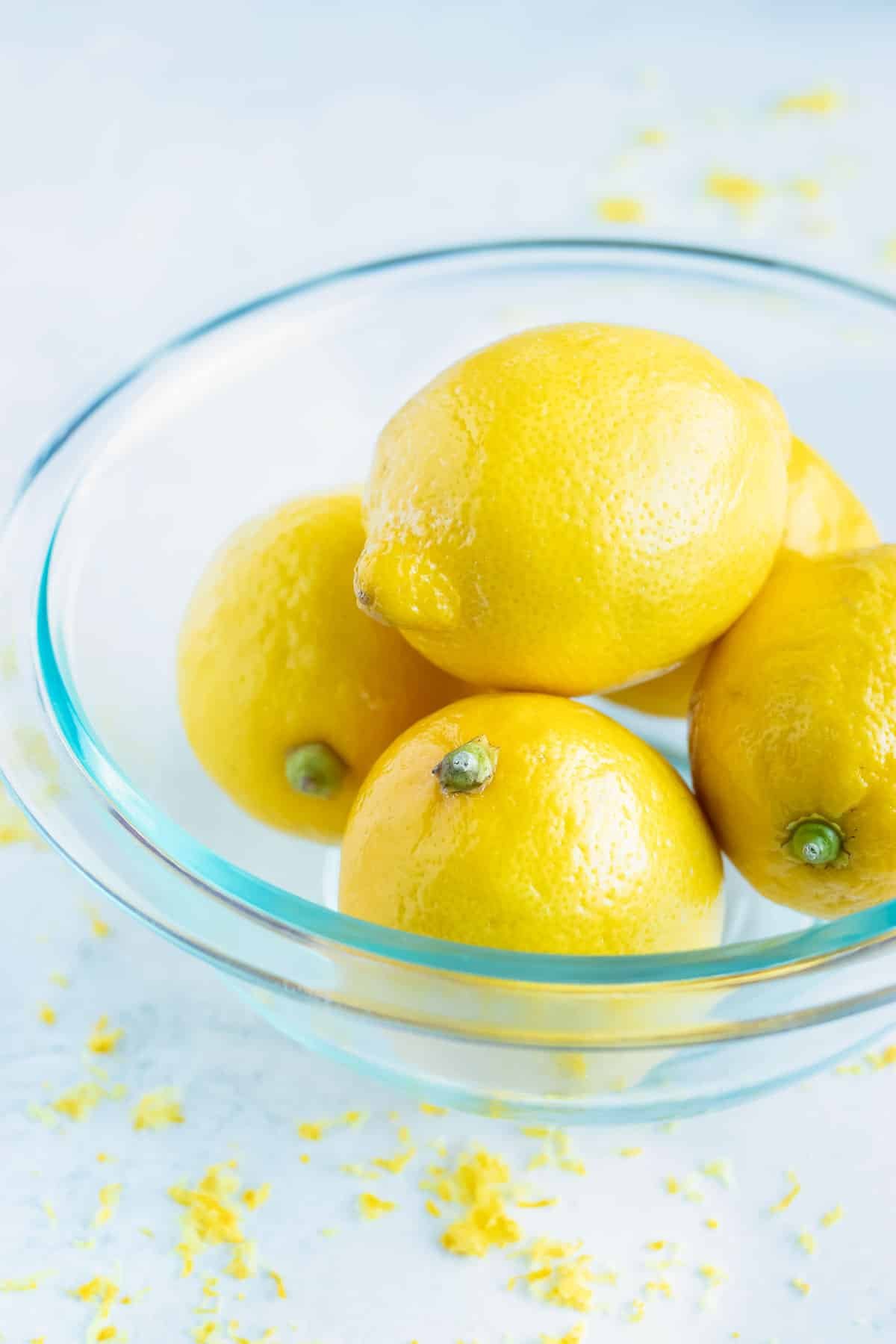
How to Pick a Ripe Lemon
Learn how to pick a ripe lemon by choosing one that does not have any bruises or brown spots. Picking one that’s smoother on the outside and brighter in color will be your best bet. If you can find one that is heavier when you hold it, even better—that means there’s more liquid content inside.
How to a Store Lemons
Your lemons will last 2 weeks at room temperature and 6 weeks in your fridge. Bacteria can cause them to get moldy sooner, so definitely clean your lemons right when you get home.
Expert Tip: If you don’t use a whole lemon at a time, store your leftover lemon in water in the fridge, so it doesn’t dry out.
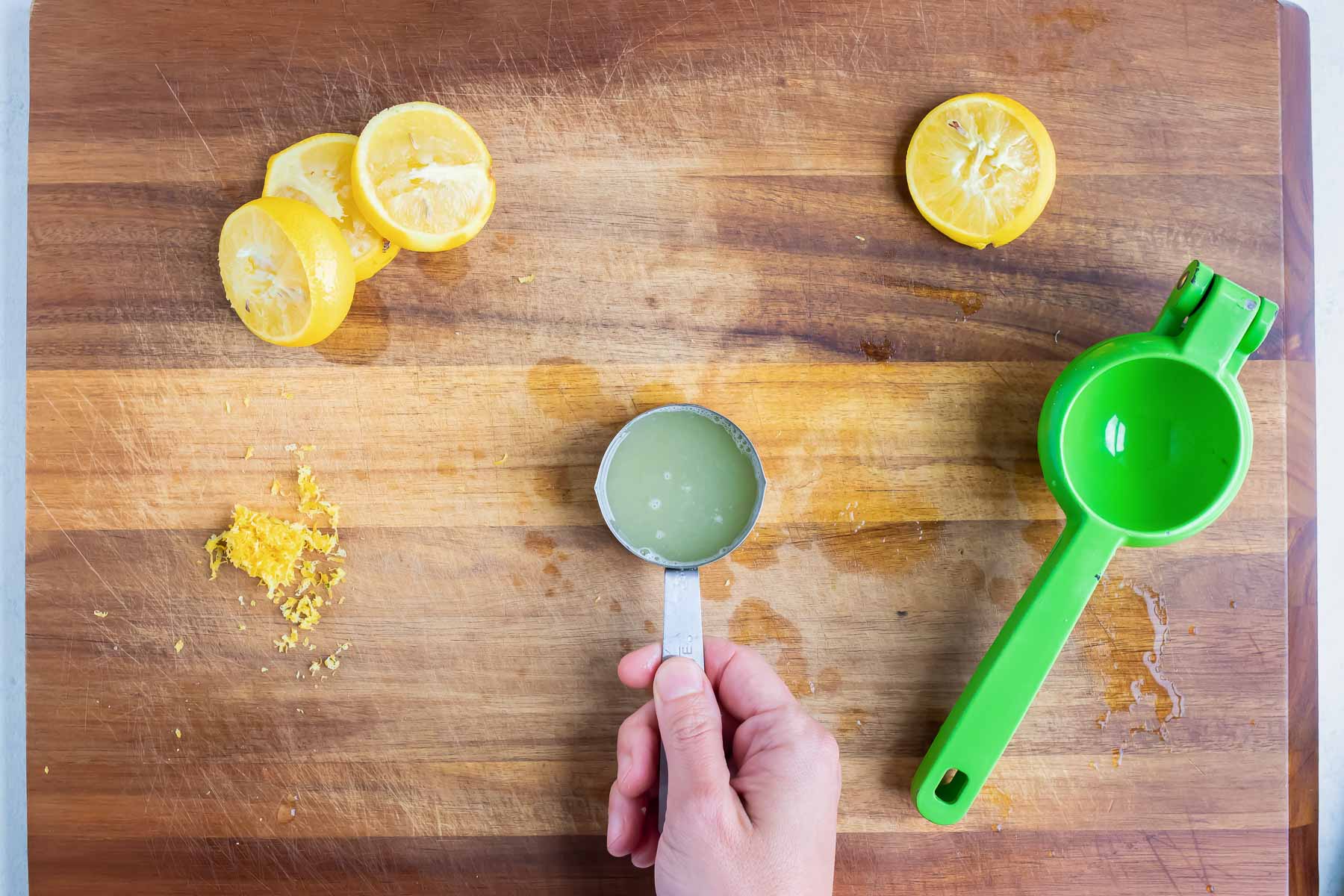
Health Risks of Lemons
There can be health risks to consuming lemons if you are drinking more than 1-2 glasses of lemon water daily with the occasional lemon juice or zest in salad dressings and sauces. Here are some potential health risks to lemon overconsumption:
- Damage tooth enamel: to prevent this, drink highly acidic beverages with a straw
- Acid reflux: Lemons can agitate this condition and cause nausea, heartburn, or indigestion
- Diarrhea: This is often preceded by cramps due to too much vitamin C intake
Lemon FAQ
Lemons are a type of hesperidium, characterized as a berry with a leathery rind.
Lemons enhance the effect that UV rays already have on your hair. The citric acid helps oxidize the hair, promoting a lightening effect in the sun. If you already have color treated hair, this is not recommended.
The average lemon weighs around 4 ounces.
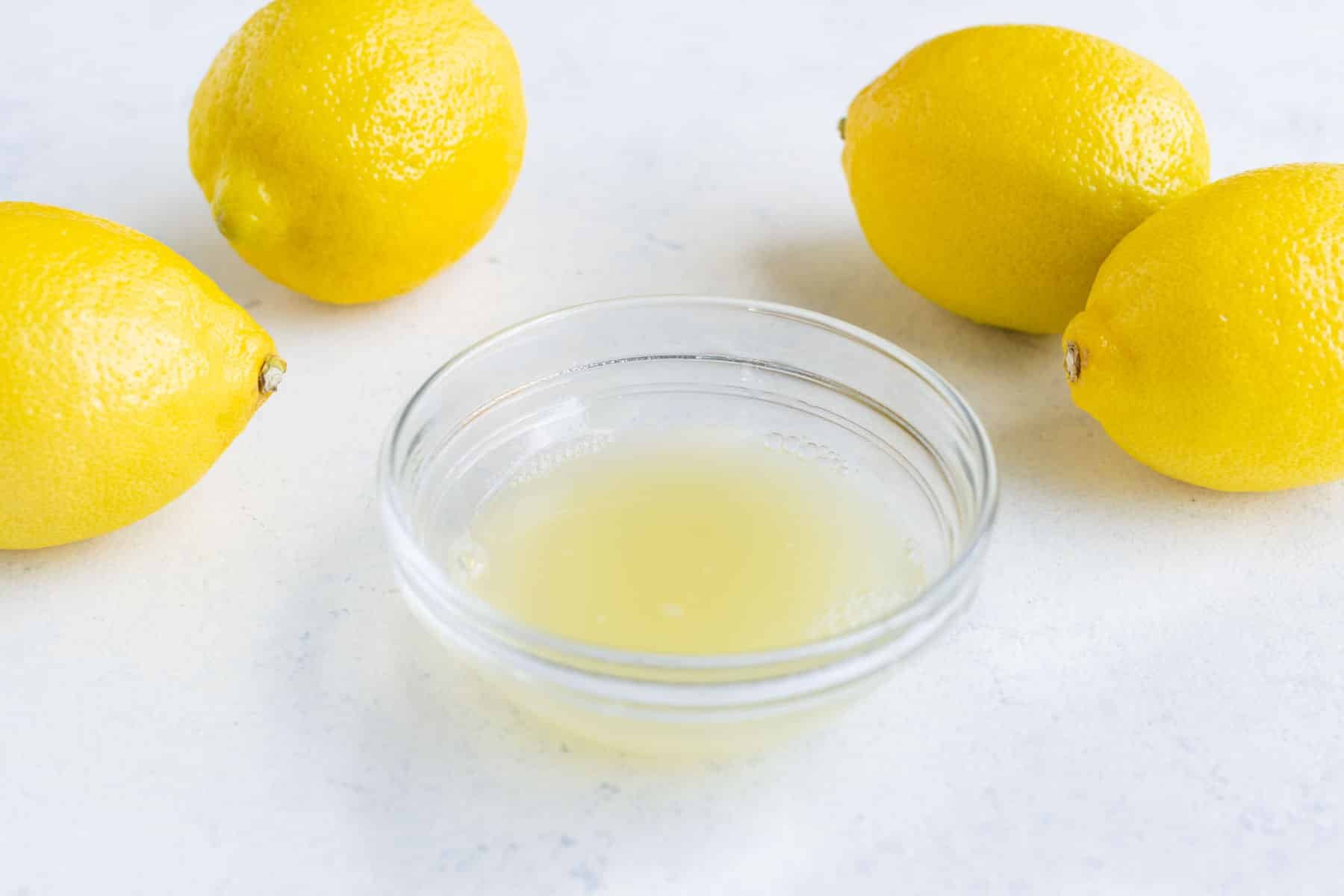
Recipes that Use Lemons
Check out these articles to learn more about lemons and their versatile uses:
Try these sweet treats:
- Lemon Blueberry Cookies
- Lemon Poppy Seed Muffins
- Healthy Lemon Zucchini Bread
- Lemon & Blueberry Frozen Greek Yogurt Bites
- Gluten-Free Lemon Cupcakes with Blueberry Frosting
- Easy Frozen Lemonade Recipe
Incorporate lemon juice in your salad dressings and sauces:
- Lemon Vinaigrette Dressing Recipe with Honey
- Lemon Tahini Salad Dressing
- Basil + Lemon Vinaigrette Dressing
- Easy Homemade Hummus
- Easy Greek Tzatziki Sauce
- Olive Garden Italian Dressing
Learn all the tips and tricks in these lemon articles:
Make these savory dinner or side dish recipes:
- Lemon Chicken Piccata with Capers
- Lemon Pepper Wings (Baked in the Oven!)
- Easy Green Beans Almondine
- Easy Baked Shrimp Scampi Foil Packets
Don’t forget about breakfast options:
- Blueberry Lemon Chai Seed Pudding
- Lemon Turmeric Smoothie with Chia Seeds & Bananas
- Paleo Lemon Blueberry Waffles

